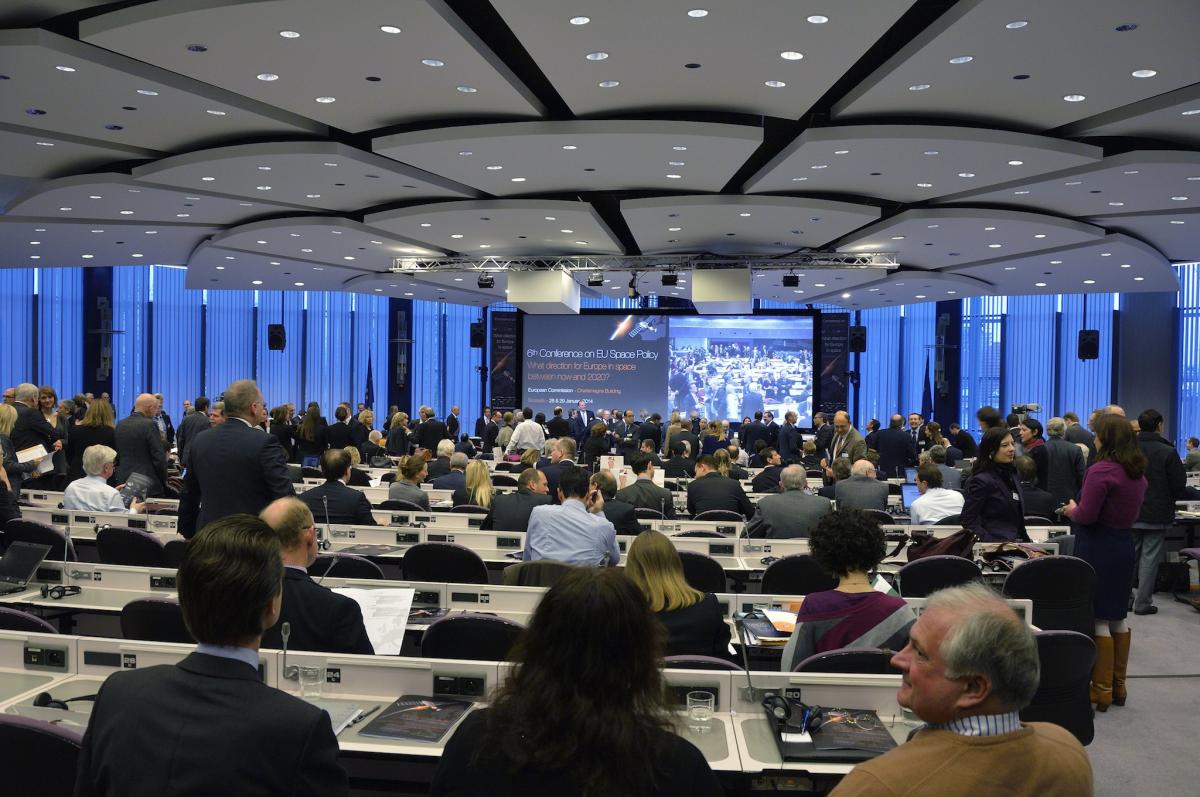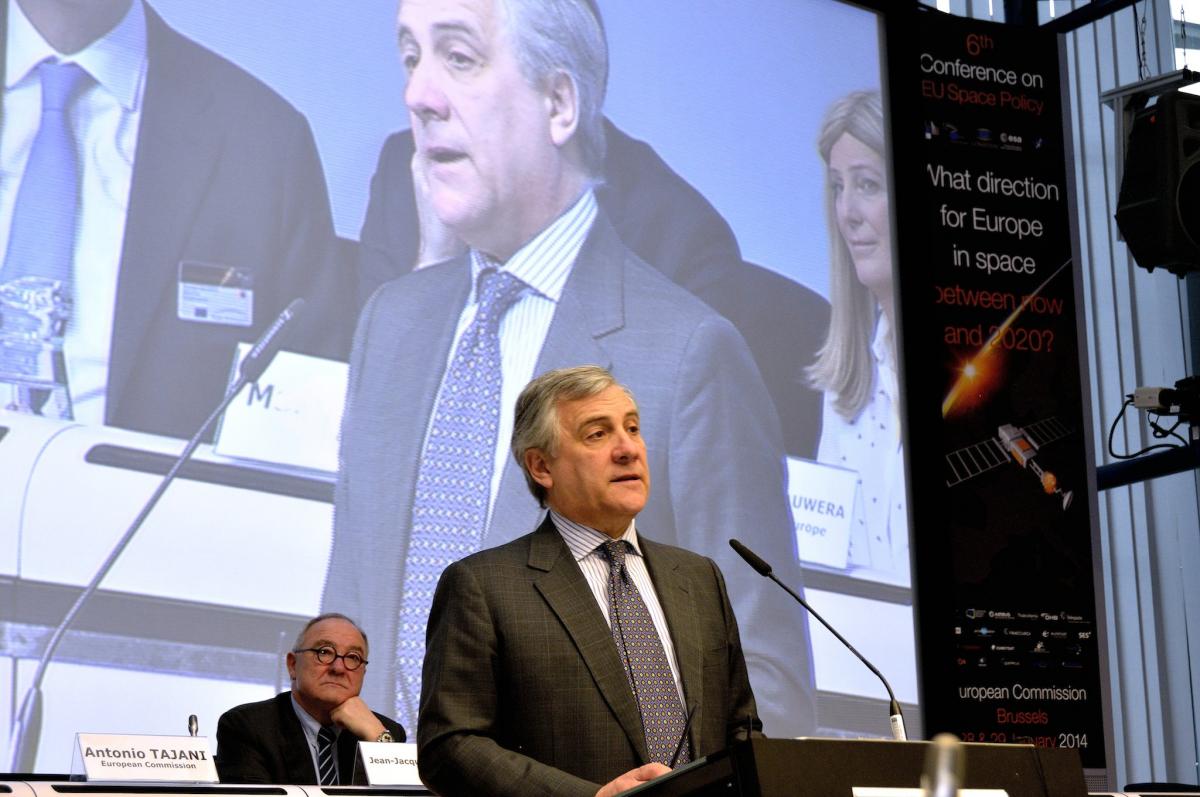The European GNSS Agency (GSA) joins President of the European Commission José Manuel Barroso, Vice President Antonio Tajani and the European space community to discuss the future of space policy in Europe.
 As the European Union launches its Multiannual Financial Framework for 2014 – 2020, the European space community gathered in Brussels to examine the future of Europe in space. The key message coming out of the Sixth Conference on EU Space Policy, held 28-29 January in Brussels, was that space plays an essential role in Europe – from building its industrial competitiveness to providing real, tangible benefits to everyday citizens.
As the European Union launches its Multiannual Financial Framework for 2014 – 2020, the European space community gathered in Brussels to examine the future of Europe in space. The key message coming out of the Sixth Conference on EU Space Policy, held 28-29 January in Brussels, was that space plays an essential role in Europe – from building its industrial competitiveness to providing real, tangible benefits to everyday citizens.
The challenge, therefore, is to capitalise on this potential and use space to carry Europe forward.
Great expectations for Galileo
With over EUR 12 billion to be invested in EU space programmes over the next seven years, expectations are high.
Speaking at his fourth and final Conference on EU Space Policy as European Commission Vice President, Antonio Tajani emphasised that his job was not yet finished. He noted that 2014 will be a crucial year for European space policy, and in particular the Galileo programme.
 The Vice President noted that with a partially deployed system comprising of four satellites in orbit and numerous ground stations around the world, Galileo is now a reality. “The tests are conclusive, Galileo’s accuracy is very stable and unmatched and the expected performances are excellent,” he said. “These results are the culmination of our industry’s expertise and open attractive prospects for services, development opportunities and innovation.”
The Vice President noted that with a partially deployed system comprising of four satellites in orbit and numerous ground stations around the world, Galileo is now a reality. “The tests are conclusive, Galileo’s accuracy is very stable and unmatched and the expected performances are excellent,” he said. “These results are the culmination of our industry’s expertise and open attractive prospects for services, development opportunities and innovation.”
2014 is poised to be a big year for Galileo, with an additional six satellites expected to be put into orbit by the close of the year. With the addition of these satellites, Galileo Early Services will be validated this year, with a view of coming online by late 2014 or early 2015.
“The provision of Galileo Early Services is a priority for the Commission,” said Tajani. “The benefits of Galileo must be tangible for our citizens and businesses, even before the full deployment of Galileo.”
Expectations for Galileo are not confined to Europe, as there is also growing interest from abroad. According to Tajani, during his international visits he has witnessed an increasing interest in EU space initiatives from third countries. In particular, Galileo’s offering of an independent system and signal is of interest to international businesses. The challenge, however, is to translate this interest into business opportunities for the European space community.
“In this regard I want to be clear, I will not let any obstacle such as patents penalize companies that want to use our system,” he said. “We can obtain a formal approval of settlement before the end of the mandate of the European Parliament in April.”
Support in Europe
The space sector, and in particular Galileo and EGNOS, is at the forefront of strengthening Europe’s economic recovery. It plays an essential role in attracting new industry and serves as a pillar to enhancing Europe’s industrial competitiveness.
This is a belief strongly supported by European citizens. According to a recent Eurobarometer report, six out of 10 Europeans view space as a source of economic growth and scientific progress. More than six out of 10 Europeans recognize the importance of space technology to warding off threats from asteroids, comets and collisions with space debris. Nearly three-quarters of all Europeans believe that space will be a key to creating a better tomorrow for today’s children.
“The message is clear, Europe supports space,” concluded Tajani. “Today we showcase that space in Europe is a reality and show why, in order to meet the expectations of our citizens, we need more Europe in space.”
More Information
Media note: This feature can be republished without charge provided the European GNSS Agency (GSA) is acknowledged as the source at the top or the bottom of the story. You must request permission before you use any of the photographs on the site. If you republish, we would be grateful if you could link back to the GSA website.
Vice President Tajani’s Speech